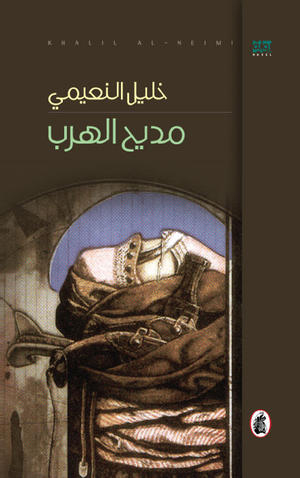Arab literary prizes sabotage Arab literature, according to Syrian novelist Khalil al-Naimi in an interview with Al-Quds Al-Arabi.
Naimi grew up in Badiat al-Sham and studied medicine and philosophy in Damascus before he moved to Paris. A physician and surgeon, he has been living in France for the past two decades and openly opposes the repression of the Baathist regime. His vision of culture is inseparable from his politics.
Naimi’s anti-Baath politics date back to the 1960s, when Baathist military officers seized power. Naimi’s experiences as a conscript soldier led him to “praising escape,” a belief that influenced his novel under a similar name, “Praise of Escape.” In this novel, he wrote about his life and the challenges he faced while living in the desert, where he spent his formative years and considered writing as a “conscientious rebellion against the logic of social life.”
The backdrop of “Praise of Escape” he describes vividly in his interview with Al Quds Al-Arabi: “Brutal power confiscated public space, forcing citizens to become soldiers, to be dead even while alive. It carried out a dangerous cultural coup that misled public opinion, not only in Syria but also in the Arab world. The Syrian culture abolished the pre-Baathification culture and cleverly elevated new names into positions of power. These were our friends at the university who, though did not have any special cultural role and were all novices just like us, became heads of cultural departments and took over theatres, seminars, and the Union of Arab “Liars” (Writers) overnight.”
When asked if his writings reached the Syrian reader, the picture was as gloomy as the circumstances that led to “Praise of Escape.” His first book, a collection of poetry entitled “Pictures of the Reactions of a Third World Person,” was banned after being printed and circulated in Damascus bookstores. Ironically, the Union of Arab Writers was behind the ban, leading him to abandon poetry and move to novel writing. Naimi’s first novel, “The Man Who Eats Himself,” was also banned in the early 1970s in Syria and republished in Beirut in 1972.
Naimi’s novel “Damascus 67” follows the resounding collapse of the Arab world, one of many books that explores this era. To the then-young author and many of his generation, the year 1967 represented the emotional reaction of the 60s generation to the defeat — “Setback” — after the 1967 war. Pessimism fueled both his politics and novels, filling him and other Arab youths at the time with a burning understanding of the collapse of the Arab world in 1967 as the pipeline to the authoritarian state that controls society today. “67” goes beyond a specific year but encompasses an era — the years during which the Arabs descended into nothingness and nihilism. Naimi dubbed it the “epoch” of the first Arab defeat in modern Arab history.
With cultural sectors coerced and controlled by authoritarian states, Naimi calls for literature without literary prizes, claiming that these prizes have “anesthetized” Arab literature on top of the harm it receives from local repressive authorities. The Arab world will not be culturally mature until they abandon them. He urges, “Let us stop sabotaging Arab literature, which is produced under conditions of extreme oppression, a sabotage that forces many Arab writers to turn to these prizes in desperation.”
Translated, edited, and compiled by Elie Chalala.
Copyright © 2021 by Al Jadid
Translated, edited, and compiled by Elie Chalala.
Copyright © 2021 by Al Jadid

